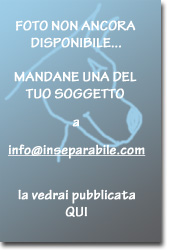PICARDY SPANIEL (Epagneul picard)

We are collecting the material for being able to realize the card of the Epagneul picard
FCI-Standard N° 108 / 25. 09. 1998 / GB
TRANSLATION : Mrs Kincaid.
ORIGIN : France.
DATE OF PUBLICATION OF THE ORIGINAL VALID STANDARD : 30.10.1964.
UTILIZATION : Pointing dog.
SUGGESTED BREEDINGS by MENANDPETS.COM:
No breeding to signal
if you want to know like signaling yours, contacts: marketing@inseparabile.it
CLASSIFICATION F.C.I. :Group 7 Pointing Dogs.
Section 1.2 Continental Pointing Dogs, Spaniel type.
With working trial.
GENERAL APPEARANCE : A strong, broadbacked dog, well boned with strong limbs; gentle expression; head carriage gay and striking. Very well constructed forequarters.
HEAD
CRANIAL REGION :
Skull : Wide and rounded, prominent occiput; parietals flat.
Stop : Sloping to the muzzle, not at right angle.
FACIAL REGION :
Nose : Brown, medium sized, nicely rounded.
Muzzle : Long, sufficiently wide, tapering from the set on at the skull to the nose; very slightly arched in the middle part.
Lips : Of medium thickness, slightly let down, not hanging.
Eyes : Dark amber in colour, well opened; expression frank and friendly.
Ears : Set on rather low, framing the skull with beautiful wavy, silky hair.
NECK : Well let into the shoulders, muscular.
BODY : Haunch bones slightly lower than the withers.
Loin : Straight, not too long, wide and full.
Croup : Very slightly sloping, rounded.
Chest : Deep, sufficiently wide, reaching well down to elbow level.
Flanks : Flat, yet deep, though with a slight tuck-up.
TAIL : Set-on not too high. Hanging down in two slight curves, convex and concave. Not too long, furnished with lovely silky feathering.
LIMBS
FOREQUARTERS : Forelegs straight, well muscled, feathered.
Shoulders : Shoulder-blade rather long, somewhat upright, sufficiently muscled.
Upper arm : Well muscled.
Elbow : Well set.
HINDQUARTERS : Hindlegs well feathered down to the hock.
Haunches : Prominent, reaching to the level of the back and loins.
Upper thighs : Straight, long, broad, well muscled.
Hocks : Slightly bent.
Rear pastern : Straight.
FEET : Round, large, tight, with a little feathering between the toes.
SKIN : Rather fine and supple.
COAT
HAIR : Dense and not too silky; fine on head, slightly wavy on the body.
COLOUR : Grey mottling with brown patches on different pads of the body and root of tail. Most often marked with tan on head and limbs.
SIZE :
Height at the withers : 55 to 60 cm.
A tolerance up to 62 cm is accepted for males.
FAULTS : Any departure from the foregoing points should be considered a fault and the seriousness with which the fault should be regarded should be in exact proportion to its degree.
- Head pear-shaped, too narrow.
- Skull too square, too narrow, too short.
- Stop at right angle.
- Nose black, pointed, pinched; split nose.
- Muzzle too short, too curved.
- Lips too thick, too short.
- Eyes too light, too deep set, level with the skull; slit eyes; vicious look.
- Ears narrow, short, set on too high, too curly or lack of silky hair.
- Neck too long, too thin, too short.
- Back too long, sunken.
- Loin too long, too narrow, too weak.
- Croup too sloping.
- Chest too narrow, not deep enough.
- Flanks too full, too deep, with excessive tuck-up.
- Tail carried in sabre-fashion, too long, too curled, set-on too high or too low.
- Forelegs without feathering, fine, tied at elbows or out at elbows.
- Shoulder blade short, too upright or too oblique, sloping too much backwards.
- Upper arm with weak bone.
- Pastern joint knuckling over.
- Haunches too low, too high, too close together.
- Upper thighs narrow, lack of feathering.
- Hocks too bent or cow-hocked.
- Feet narrow, flat or splayed.
- Skin too thick.
- Hair fine, silky, curly, or too short.
- Too much brown colour, patched with white or black.
Any dog clearly showing physical or behavioural abnormalities shall be disqualified.
N.B. : Male animals should have two apparently normal testicles fully descended into the scrotum.